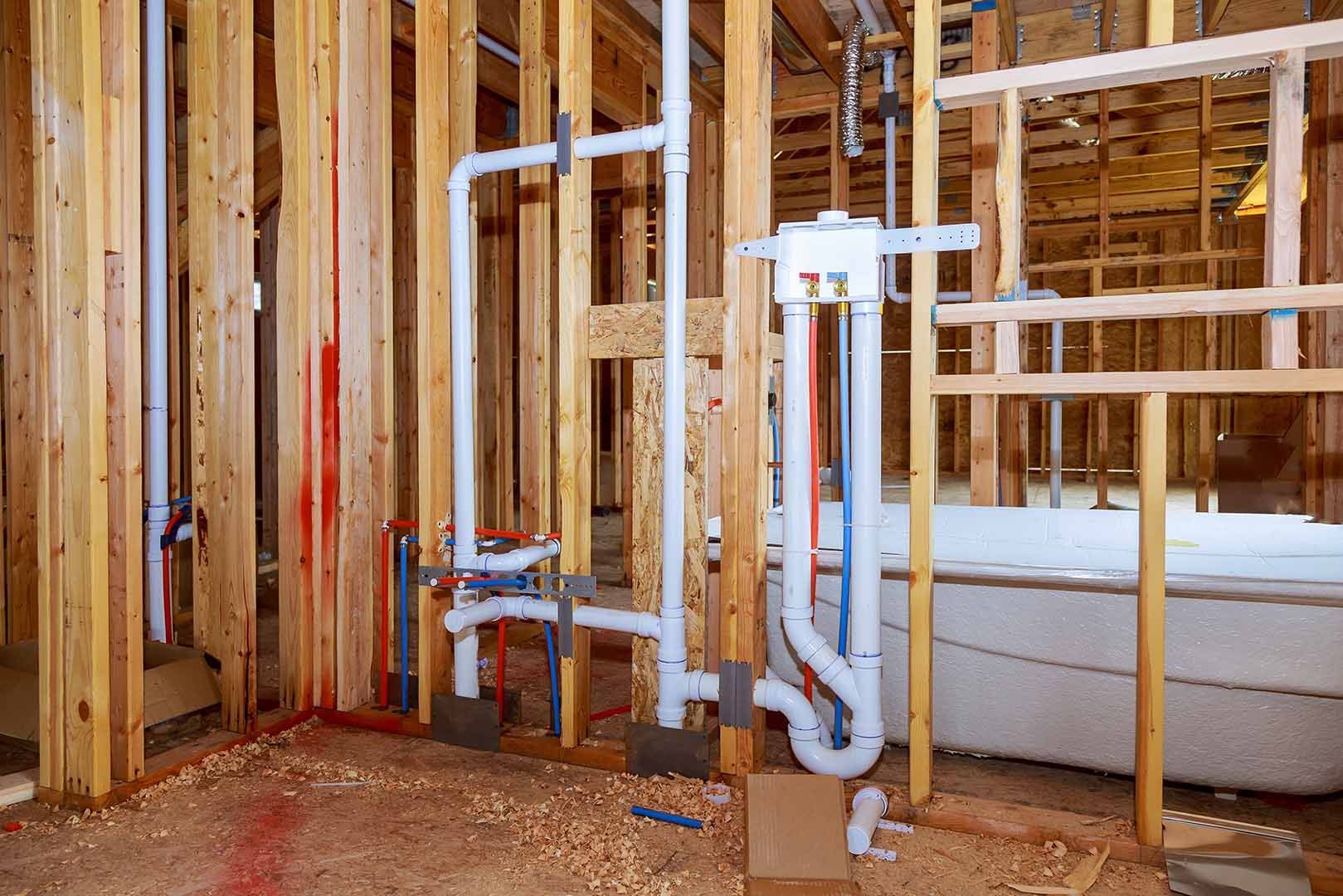
What Is Involved in Re-Piping A Home?
The water pipes of your home are too important to ignore. A faulty pipe in your plumbing system is a big issue. Homeowners could face water leaks, low water pressure, pipe failure, discolored or bad-smelling water. A leak on the pipe is often easy to fix, but when pipes need frequent fixing, it can be costlier than you think!
So when you're tired of frequently spending on pipe maintenance or simply remodeling your house, consider repiping instead of spending more on quick fixes. Follow our guide to find out more about the details of repiping house.
When to Get a Repiping?
Homeowners should not make snap judgments regarding a whole house repipe. Here are some signs that will tell you when to consider repiping.
When You Have Lead, Galvanized Steel or Copper Pipes
Homes older than 100 years mostly have lead pipes in the plumbing system. It's been known that lead pipes pose a severe health risk as lead can sometimes seep into the water supply. Pipes deteriorate over time, and this causes pinhole leaks to form.
Many homes have already replaced their lead pipes, but if you're unsure what pipes your home has, it's about time to get an inspection. If your house is lead piped, call for a repiping plumbing company and get a full repiping.
Similar to lead, galvanized steel was also common in older homes. Especially homes built between 1940 to 1960 and earlier used galvanized steel pipes. It's a durable yet corrosion-prone material that can be as unhealthy as drinking water pipes.
Repairing pipes with leaks and problems always ramps up your costs. But it's a waste when your pipe is broken and calling for more frequent repairs. If this is the case for you, repiping your home is the cost-effective road. A brand-new system will not only save you recurring plumbing problems but last for years to come.
While Having a Home Remodeling
So, have you decided to remodel your kitchen or bathroom? Or would you like to add rooms to the house? Remodeling like these requires installing new plumbing features. Consider repiping your home while undergoing a plumbing upgrade. If the plumbing is set aside during the remodeling, you could face various plumbing issues.
What Does Repiping Look Like?
Not sure how to repipe a house? Here's what you can expect during a repiping process:
- Initial Preparations
Plumbers will make holes in the drywall to access the old pipes and install new ones. Put away your furniture, valuable electronics, and decor, or at least cover them to protect them from dirt and debris.
Before the renovation, shut off the water line. In some cases, the old system works fine and supplies water, while the plumber works to build the new pipes. However, you might get no water when the plumber connects the system. In most cases, homeowners are never left without water.
Remember, repiping does require a permit. After the initial work gets done, get your water permit in time. Superior Plumbing & Pipelining provides the permits as a licensed contractor.
- Creating Access
The plumbers usually access the drywall from multiple rooms of your house. After the work, they must fix and repaint the areas they've broken down to install the pipes.
To make things easier, prepare the walls so they can access them without delay. You might have to move artwork, wall hangings, or furniture blocking the specific walls beforehand.
- Final Inspection
The plumber will inspect once the pipes are installed. If everything goes perfectly, the plumber will patch the drywall and repair your walls before they wrap up the project.
How Long Does the Process Take?
Repiping will take at least two to three days a week, depending on your requirements. For houses with multiple bathrooms, it takes longer. As mentioned before, the water supply will be off occasionally during work. It's better to consult with your plumber to reduce the water supply disruptions as much as possible.
Get an Inspection Before Repiping
Before you go out and repipe, get a professional inspection from a plumber. Full repiping can be costly. That's why you should identify what things need to be addressed in your plumbing system and their estimated cost. Consider asking the plumber about the option of lining pipes as an alternative to full repiping, which might be a more cost-effective solution depending on the condition of your pipes.
Ask for a quote from your plumber after they inspect the plumbing system. Homeowners tend to get price estimates from multiple plumbers, which can be a great idea to minimize their expenses.
After a proper inspection, you should have a pretty good idea about the situation of your pipes. That way, you can decide whether to work on separate sections or get a complete repiping.
Get Free Estimation from Superior Plumbing
Planning to get a repiping done in Jacksonville, FL? Let Superior Plumbing help you estimate the proper costs of your repiping or plumbing repairs. Superior Plumbing only uses high-quality Uponor PEX Pipes for replacements; no other product can beat the quality available. Working with us, you don't have to tackle water disruption for more than a few hours. Our installation usually takes about two to five days only.
Contact Superior Plumbing to fix all your plumbing issues and get the repair done with the highest-quality material.
In addition to Duval County, Superior Plumbing & Pipelining also services Clay, Saint Johns, Nassau, and Baker Counties.New Paragraph
FAQs
What is re-piping a home?
Re-piping a home involves replacing old or damaged plumbing pipes throughout the entire house with new ones. This process is usually necessary when pipes are corroded, leaking, or have low water pressure.
When should a home be re-piped?
A home should be re-piped if you experience frequent leaks, low water pressure, discolored water, or if your pipes are made of outdated materials like galvanized steel or polybutylene. Homes with older pipes (over 50 years) may also require re-piping.
How long does it take to re-pipe a house?
Re-piping a house typically takes 3 to 7 days, depending on the size of the home and the complexity of the plumbing system. Larger homes with more plumbing may take longer.
What types of pipes are used when re-piping a home?
Write a description for this list item and include information that will interest site visitors. For example, you may want to describe a team member's experience, what makes a product special, or a unique service that you offer.
Does re-piping a home require walls to be opened up?
Yes, re-piping typically requires opening walls, ceilings, or floors to access the existing pipes. Professional plumbers usually try to minimize damage and may only need to cut small sections for access.
How much does it cost to re-pipe a house?
Yes, water will be turned off for portions of the re-piping process. However, plumbers usually work to minimize disruptions, and in many cases, water can be restored at the end of each workday.
How do I know if my home needs re-piping?
Signs that your home may need re-piping include frequent pipe leaks, rust-colored water, reduced water pressure, and visible corrosion on exposed pipes. If your plumbing system is more than 40-50 years old, an inspection can help determine if re-piping is necessary.
Do I need a permit to re-pipe my home?
Yes, most cities and municipalities require a plumbing permit for re-piping a home. A licensed plumber will usually handle the permit process to ensure that the work complies with local building codes.
Will re-piping a home increase its value?
Yes, re-piping a home can increase its value by improving water quality, reliability, and overall plumbing performance. It also reduces the risk of future leaks, which can appeal to potential buyers.

